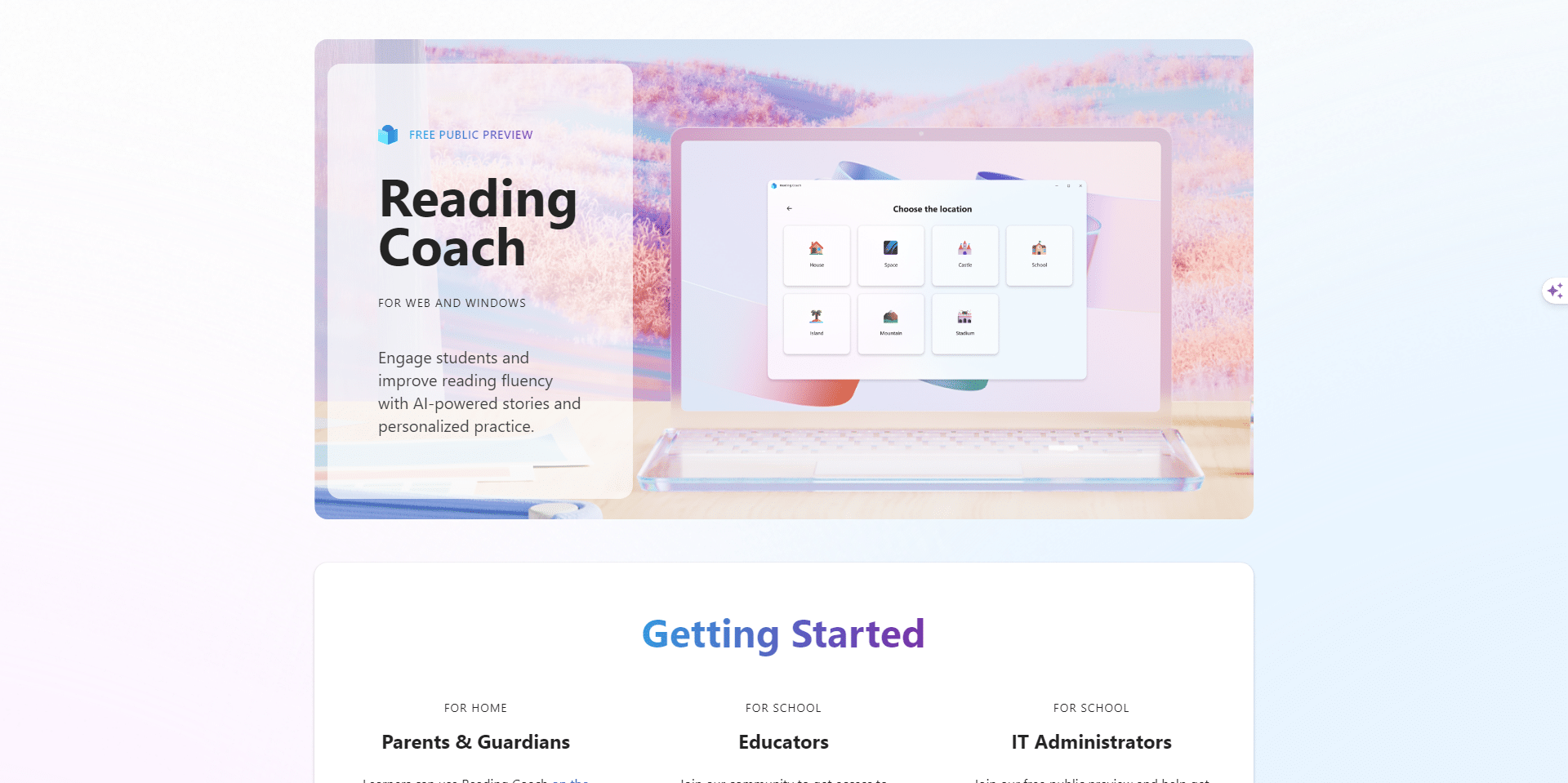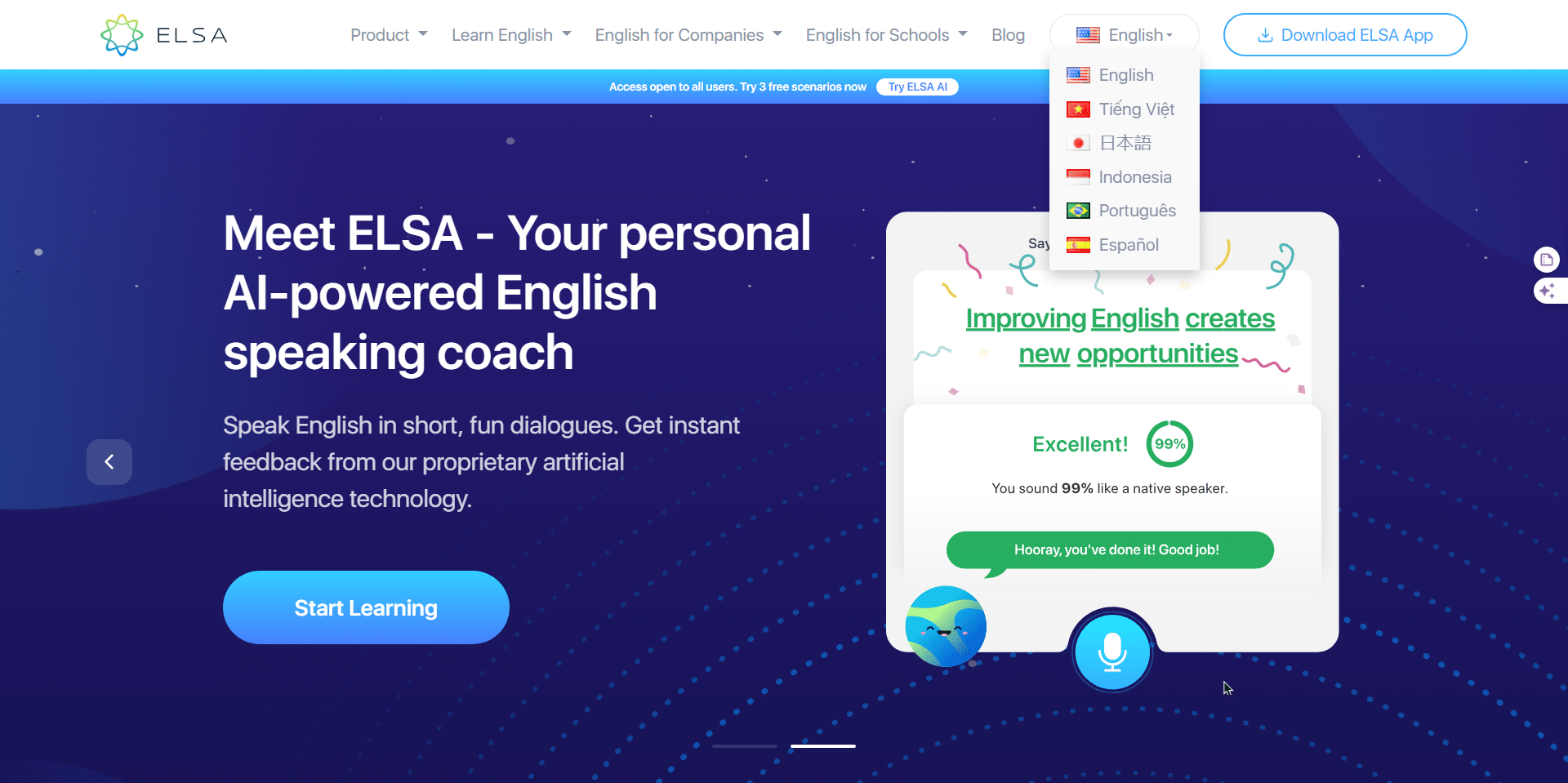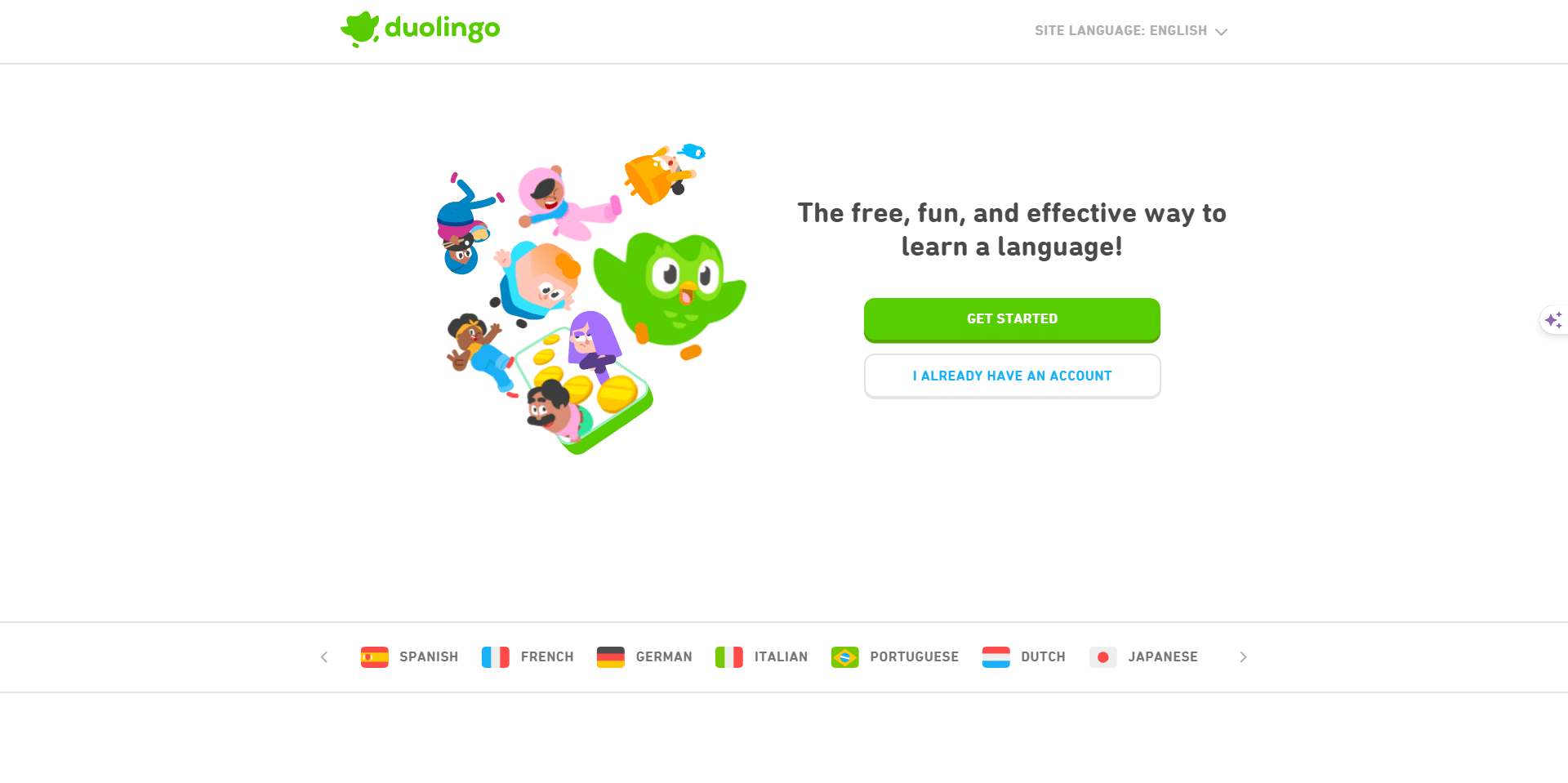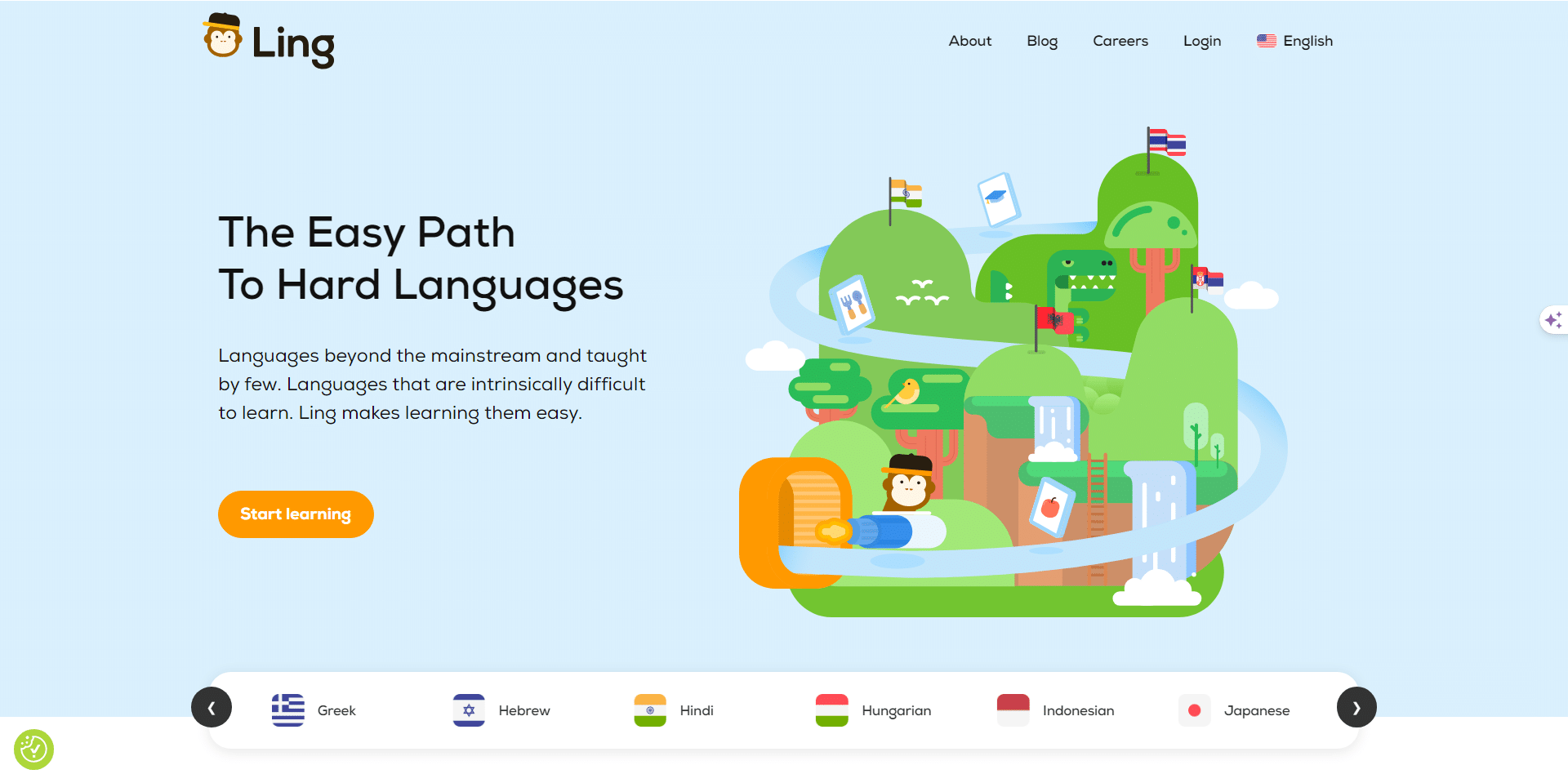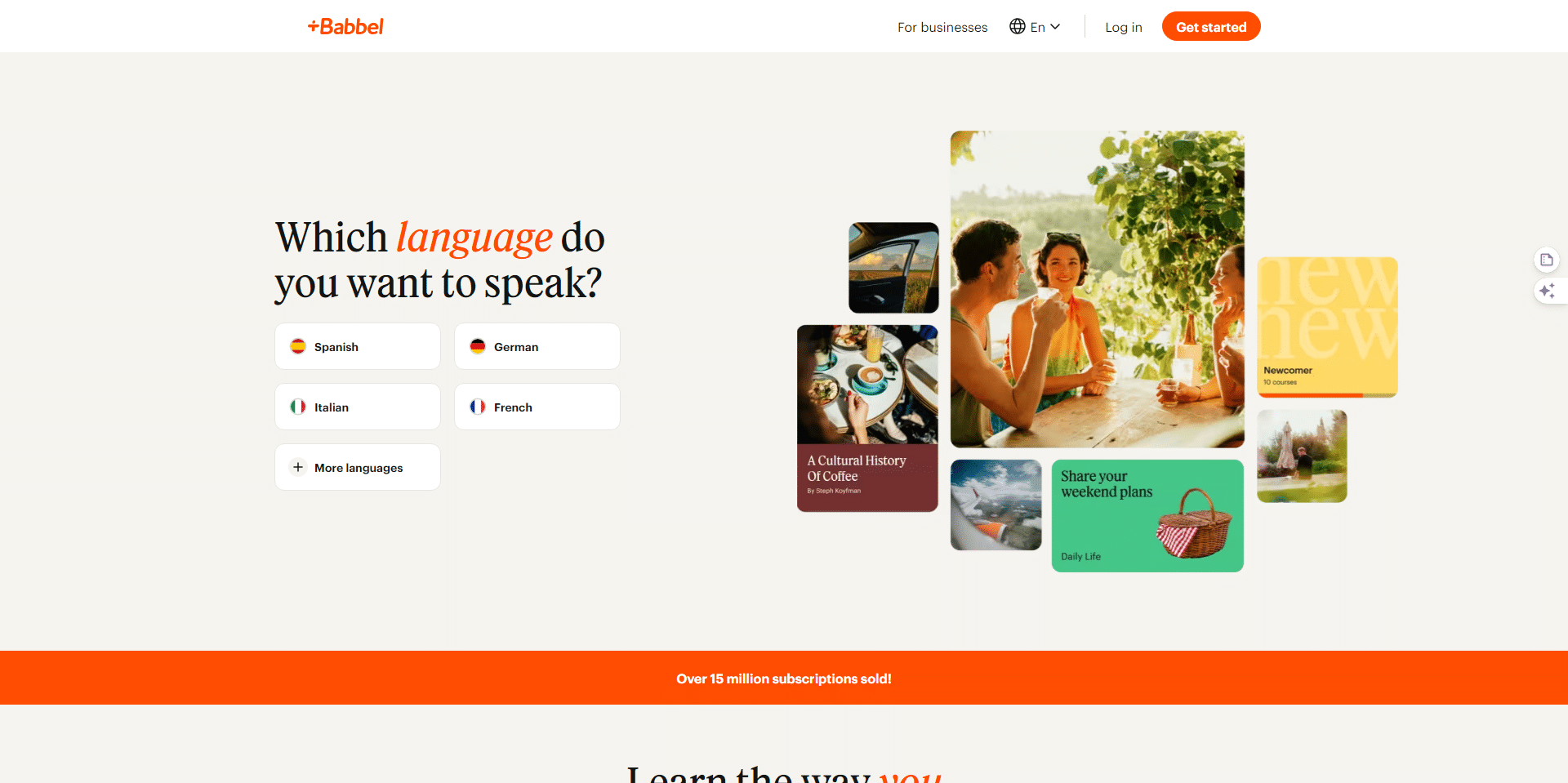Have you always dreamed of speaking a foreign language but find traditional methods daunting? The good news is that AI advancements are significantly affecting language learning. AI has made learning a foreign language way more effective than it used to be, mostly because of the personalised experience it offers to the learners.
There are countless AI apps out there that promise to help you learn a foreign language. But which are worth your time? Let’s take a look at some fantastic AI-powered tools that can help you master languages.
Microsoft Reading Coach
Microsoft Reading Coach is designed to assist, mostly younger students in improving their reading fluency.
It uses engaging, AI-powered stories that adapt to the user’s learning pace. Personalised practice sessions help learners strengthen their comprehension skills, while achievements provide motivation. Each achievement unlocks new story elements, making learning an engaging and evolving process.
- Learners co-create stories with responsible AI.
- Detects challenging words and embeds extra practice.
- Inclusive design for emerging readers and dyslexic learners.
- Gamification features
ELSA Speak
ELSA is an AI platform that teaches language using fun, concise dialogues. It relies on the power of gamification and engaging content to enhance learners’ speaking skills.
ELSA Speak is designed to help students learn the correct pronunciation of small phonetic components of the language, such as letters and syllables. As they progress, they advance to harder topics and can master more complex conversational and speaking skills, including intonation and flow in theme-specific situations. The learning experience is made even more engaging with the integration of games and rewards.
- Short, fun dialogues.
- Holistic learning strategy that focuses on speaking.
- AI-assisted conversational tools
Duolingo
Recognised worldwide for its impressive features, Duolingo is the go-to platform for many language learners. With an extensive range of over 40 languages and a micro-learning approach, Duolingo combines clever-made gamified lessons, such as fun challenges and reminders, with role-playing elements.
Learners benefit from personalised feedback, ensuring lessons cater to their individual learning pace. Duolingo uses AI and language science to ensure that each short lesson is tailored to each learner’s needs and level.
- Free-to-use language
- Offers interactive language-learning exercises.
- Uses gamification to make learning engaging.
Ling
Offering a broad selection of over 60 languages, Ling provides a dynamic learning experience. Ling is well known for focusing on hard-to-learn languages.
Ling’s curriculum is structured around engaging, game-like interactive lessons paired with quizzes to aid retention. It offers simplified 10-minute lessons covering all skills, from speaking to reading. I also like that pronunciation feedback is rigorously provided, perfecting learners’ speaking abilities.
- Structured around interactive, game-like lessons.
- Provides detailed pronunciation feedback to refine speaking skills.
- Incorporates an AI chatbot used for vocabulary practice.
Ling
Babbel is a premier language learning platform designed with adult learners in mind.
The real-life dialogues form the backbone of learning within Babbel, promoting familiarity with everyday language use. Babbel’s approach offers learners a chance to master 13 distinct languages, focusing on practical application. It concentrates on making language learning a vital and applicable part of daily life.
- Provides tailored material based on proficiency level and interests.
- Gives real-time feedback and progress tracking.
- Focuses on practical skills for immediate use
- Combines speech recognition, dialogues, grammar tips, and culture insights
Did you know that I can help you create Language Learning experiences that are effective, engaging and memorable?
Check out my ESL/EFL Games section, and then reach out to me. Let’s make something great together!
